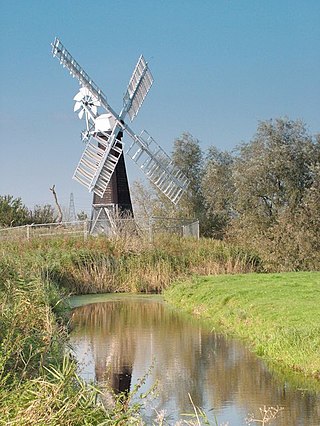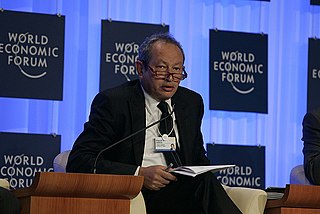Judgment
The Court of Appeal held that the transfer took place in March, meaning the taxes were not due. Although legal title passed to the claimants only when the shares were finally registered by the company, the beneficial title passed as soon as Mr Rose completed the share transfer forms. Once he did this he was not at liberty to merely cancel the transfer, and so when he handed away the forms, the shares were held on constructive trust.
Lord Evershed MR distinguished Milroy v Lord on the basis that there, Thomas Medley could have himself done more to ensure that the transfer was completed, because he did not merely need to leave Samuel Lord with an (unexercised) power of attorney to register the share transfer. Here the donor (Mr Rose) had done everything in his power that he had needed to do to make the transfer effective.
Jenkins LJ and Morris LJ both concurred, with the former delivering a concurring judgment.

English trust law concerns the protection of assets, usually when they are held by one party for another's benefit. Trusts were a creation of the English law of property and obligations, and share a subsequent history with countries across the Commonwealth and the United States. Trusts developed when claimants in property disputes were dissatisfied with the common law courts and petitioned the King for a just and equitable result. On the King's behalf, the Lord Chancellor developed a parallel justice system in the Court of Chancery, commonly referred as equity. Historically, trusts have mostly been used where people have left money in a will, or created family settlements, charities, or some types of business venture. After the Judicature Act 1873, England's courts of equity and common law were merged, and equitable principles took precedence. Today, trusts play an important role in financial investment, especially in unit trusts and in pension trusts. Although people are generally free to set the terms of trusts in any way they like, there is a growing body of legislation to protect beneficiaries or regulate the trust relationship, including the Trustee Act 1925, Trustee Investments Act 1961, Recognition of Trusts Act 1987, Financial Services and Markets Act 2000, Trustee Act 2000, Pensions Act 1995, Pensions Act 2004 and Charities Act 2011.

T Choithram International SA v Pagarani[2000] UKPC 46 was a decision of the Judicial Committee of the Privy Council on appeal from the British Virgin Islands in relation to the vesting of trust property in a trustee.

English contract law is the body of law that regulates legally binding agreements in England and Wales. With its roots in the lex mercatoria and the activism of the judiciary during the Industrial Revolution, it shares a heritage with countries across the Commonwealth, from membership in the European Union, continuing membership in Unidroit, and to a lesser extent the United States. Any agreement that is enforceable in court is a contract. A contract is a voluntary obligation, contrasting to the duty to not violate others rights in tort or unjust enrichment. English law places a high value on ensuring people have truly consented to the deals that bind them in court, so long as they comply with statutory and human rights.

Stack v Dowden [2007] UKHL 17 is a leading English property law case concerning the division of interests in family property after the breakdown of a cohabitation relationship.

Milroy v Lord [1862] EWHC J78 is an English trusts law case that held trusts should not be used to save gifts from being defeated. It purported to follow one of the maxims of equity that "Equity will not assist a volunteer".

Vandervell v Inland Revenue Commissioners [1967] 2 AC 291 is a leading English trusts law case, concerning resulting trusts. It demonstrates that the mere intention to not have a resulting trust does not make it so.

Re Vandervell Trustees Ltd [1974] EWCA Civ 7 is a leading English trusts law case, concerning resulting trusts.
Constructive trusts in English law are a form of trust created by the English law courts primarily where the defendant has dealt with property in an "unconscionable manner"—but also in other circumstances. The property is held in "constructive trust" for the harmed party, obliging the defendant to look after it. The main factors that lead to a constructive trust are unconscionable dealings with property, profits from unlawful acts, and unauthorised profits by a fiduciary. Where the owner of a property deals with it in a way that denies or impedes the rights of some other person over that property, the courts may order that owner to hold it in constructive trust. Where someone profits from unlawful acts, such as murder, fraud, or bribery, these profits may also be held in constructive trust. The most common of these is bribery, which requires that the person be in a fiduciary office. Certain offices, such as those of trustee and company director, are always fiduciary offices. Courts may recognise others where the circumstances demand it. Where someone in a fiduciary office makes profits from their duties without the authorisation of that office's beneficiaries, a constructive trust may be imposed on those profits; there is a defence where the beneficiaries have authorised such profits. The justification here is that a person in such an office must avoid conflicts of interest, and be held to account should he fail to do so.

Conservative and Unionist Central Office v Burrell [1981] EWCA Civ 2 is an English trusts law case ruling on the "beneficiary principle". The Inland Revenue sought to define the party, a mixed-money, common-object body with regular spending for political purposes, as an unincorporated association. The direct subject matter was on the applicability of corporation tax, which was confirmed to apply to unincorporated associations but that the set-up of the party and its rules were not such an instance. The party was a sui generis body meaning a lex specialis should apply.
Futter v HM Revenue and Customs [2013] UKSC 26 is an English trusts law case, concerning the fiduciary duty to take into account relevant factors, and disregard irrelevant factors. It held that trustees who act on professional advice do not breach this duty, and that even if they do, the failure to have proper regard to relevant matters only ever renders a transaction voidable. For a transaction to be wholly set aside, as in common mistake, a decision by a trustee must be based on a truly "basic" mistake.

Pennington v Waine[2002] EWCA Civ 227 is an English trusts law case, concerning the requirements for a trust to be properly constituted, and the operation of constructive trusts. The case represents an equitable exception to the need for a complete transfer of property in law.

Sinclair Investments (UK) Ltd v Versailles Trade Finance Ltd[2011] EWCA Civ 347 is an English trusts law case, concerning constructive trusts. Sinclair was partially overruled in July 2014 by the UK Supreme Court in FHR European Ventures LLP v Cedar Capital Partners LLC.

Green v Lord Somerleyton is an English land law and tort law case, concerning easements of surface water/ditch drainage and the tests for nuisance in English law. In this case there was no remedy for the flooding found to be natural and not recently exacerbated by the defendant. The court attached to the properties an old, 1921, easement of drainage passing both land holdings, in this case two common examples of lowland water engineering, dykes controlled against tides by one-way valves, mentioned in the properties' deeds and, duplicatively, established the right by prescription. The dykes lay in the claimant's own land who had failed to maintain them and failed to account for the flows caused by reduction of water extraction from the lake upstream. The claimant had failed to repair the pump and clear ditches on his own land which had been agreed between the previous owners to give channelled drainage from a lake above. It was for the claimant to recognise the danger posed by its waterline being raised in 1954 by the building up of a weir.

Murad v Al-Saraj[2005] EWCA Civ 959 is an English trusts law case, concerning remedies for breach of trust for a conflict of interest. It exemplifies a restitution claim.

Re Diplock or Chichester Diocesan Fund and Board of Finance Inc v Simpson [1944] AC 341 is an English trusts law and unjust enrichment case, concerning tracing and an action for money had and received.
Relfo Ltd v Varsani [2014] EWCA Civ 360 is an English unjust enrichment law case, concerning to what extent enrichment of the defendant must be at the expense of the claimant.

Benedetti v Sawiris[2013] UKSC 50 is an English unjust enrichment law case, concerning the method for determining the amount of a quantum meruit claim. It was decided by the United Kingdom Supreme Court.
Re Harvard Securities Ltd[1997] EWHC 371 (Comm) is an English trusts law case, concerning the certainty of subject matter in a trust.
![<i>Mascall v Mascall</i> Appeal of legal case [1984] re: formalities in English law](https://upload.wikimedia.org/wikipedia/commons/thumb/f/ff/HM_Land_Registry_name.jpg/320px-HM_Land_Registry_name.jpg)
Mascall v Mascall[1984] EWCA Civ 10 was an appeal on formalities in English law. The final, registration stage of a witnessed deed of transfer is not imperative in all circumstances, the court confirmed. Those circumstances include that there must be no detriment to a third party bona fide purchaser or mortgagee for value without notice; and there must be no fraud or abuse of trust as defined by law. It has wider resonance with the formalities of Trusts in English law.

FHR European Ventures LLP v Cedar Capital Partners LLC[2014] UKSC 45 is a landmark decision of the United Kingdom Supreme Court which holds that a bribe or secret commission accepted by an agent is held on trust for his principal. In so ruling, the Court partially overruled Sinclair Investments (UK) Ltd v Versailles Trade Finance Ltd in favour of The Attorney General for Hong Kong v Reid (UKPC), a ruling from the Judicial Committee of the Privy Council on appeal from New Zealand.













![<i>Mascall v Mascall</i> Appeal of legal case [1984] re: formalities in English law](https://upload.wikimedia.org/wikipedia/commons/thumb/f/ff/HM_Land_Registry_name.jpg/320px-HM_Land_Registry_name.jpg)
